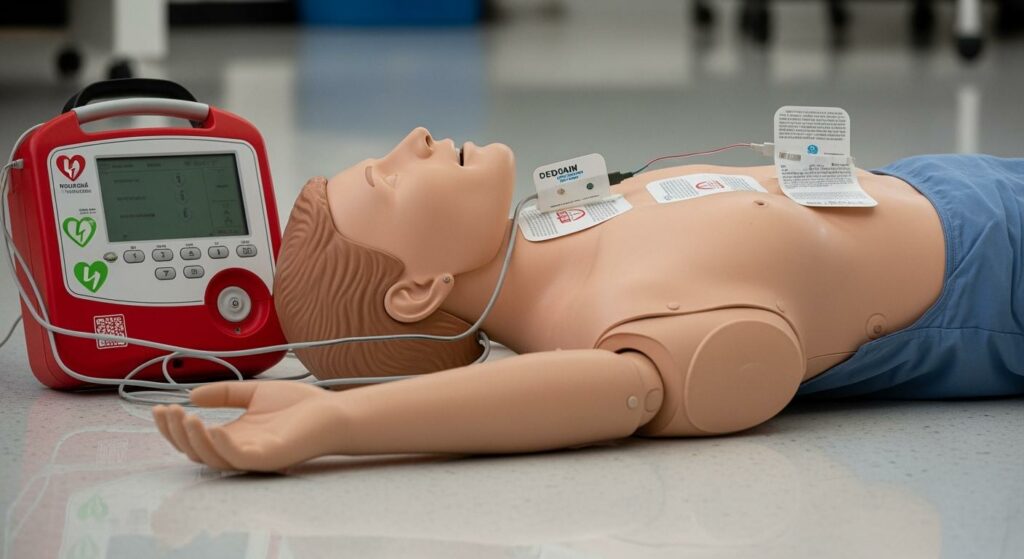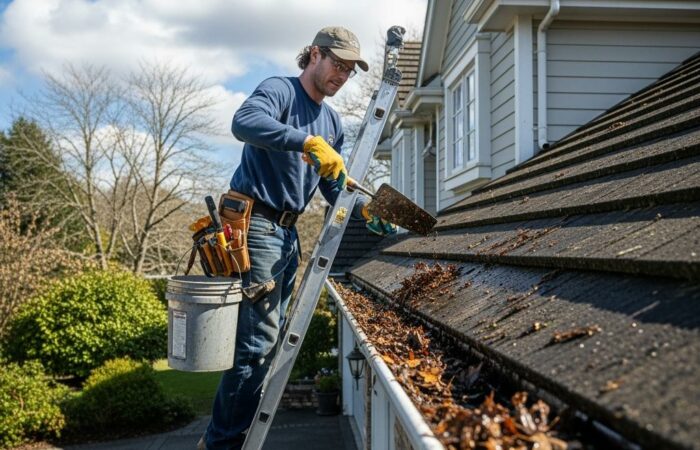
Cardiac arrest can strike anyone, anywhere, at any time. When someone’s heart stops beating, every second counts—in fact, for each minute without CPR and defibrillation, the chance of survival decreases by 7-10%. As a Heart Safe Community, Madison is committed to improving outcomes for cardiac arrest victims through education, training, and strategic placement of life-saving equipment throughout our town.
What is CPR?
Cardiopulmonary Resuscitation (CPR) is an emergency life-saving procedure performed when someone’s heart stops beating. It combines chest compressions and rescue breathing to maintain blood flow and oxygen to the brain and other vital organs until advanced medical help arrives.
Modern CPR guidelines emphasize:
- High-quality chest compressions
- Minimal interruptions
- Early defibrillation when available
- “Hands-Only” CPR for untrained bystanders
When to Use CPR
CPR should be started immediately when someone:
- Is unresponsive (doesn’t respond when you tap or shout)
- Is not breathing or is only gasping occasionally
- Has no pulse (if you’re trained to check)
Remember this simple sequence: Check, Call, Compress
- Check for responsiveness and normal breathing
- Call 911 (or have someone else call)
- Compress the chest hard and fast (100-120 compressions per minute)
Hands-Only CPR for Bystanders
If you haven’t been trained in CPR, the American Heart Association recommends Hands-Only CPR:
- Call 911
- Push hard and fast in the center of the chest to the beat of “Stayin’ Alive” by the Bee Gees (which is approximately 100-120 beats per minute)
- Continue until help arrives
The Importance of Early CPR in Madison
Madison EMS maintains an average response time of 6 minutes with two fully staffed Advanced Life Support ambulances operating 24/7, each with one EMT and one paramedic. However, Madison’s unique geography presents challenges:
- Our town’s north-to-south layout means response times can vary significantly depending on location
- Seasonal population increases during summer months
- Increased traffic on I-95 and visitors to Hammonasset State Park during warm weather can impact response times
These factors make bystander CPR and early defibrillation critically important links in the chain of survival. When CPR is started immediately, it can double or triple a victim’s chance of survival.
AEDs in Madison
Automated External Defibrillators (AEDs) are user-friendly devices that analyze heart rhythm and deliver an electric shock if needed to restore normal heart function.
Madison currently has:
- 12 publicly accessible AEDs available 24/7 throughout town
- A total of 70 AEDs when including town facilities, schools, religious centers, local businesses, parks, police cruisers, fire apparatus, volunteer fire department responders’ personal vehicles, and Madison EMS apparatus
AEDs are designed to be used by anyone, with clear voice prompts guiding users through the process. The device will only deliver a shock if it determines one is needed, making it safe for untrained users.
Madison’s Heart Safe Community Designation
Madison has earned and maintains its designation as a “Heart Safe Community,” reflecting our commitment to:
- Providing CPR and AED training to residents
- Strategic placement of AEDs throughout the community
- Enhancing the emergency response system
- Promoting public awareness of the signs of sudden cardiac arrest
This designation recognizes communities that have implemented programs to improve outcomes for cardiac arrest victims.
CPR Training Through Madison EMS
Madison EMS offers several CPR training options for community members:
For the General Public
- American Heart Association HeartSaver CPR
- AED training
- First Aid certification
For Healthcare Providers
- Basic Life Support (BLS) Healthcare Provider courses
For Organizations
Madison EMS provides specialized training for:
- Schools (for teachers and staff)
- Local businesses and doctors’ offices
- Public organizations
Contact Madison EMS at (203) 245-9821 or visit madisonctems.org to schedule training for yourself or your organization.
The Chain of Survival
Surviving cardiac arrest depends on a series of critical actions:
- Immediate recognition and activation of emergency response
- Early CPR with emphasis on chest compressions
- Rapid defibrillation with an AED
- Advanced life support by EMS providers
- Post-cardiac arrest care at the hospital
- Recovery including physical, psychological, and neurological support
Each link in this chain is vital, and the first three links depend heavily on bystander action.
CPR Steps for Trained Rescuers
If you’ve been trained in CPR:
- Check the scene for safety
- Check the victim for responsiveness and breathing
- Call 911 or have someone else call
- Check for a pulse (no more than 10 seconds)
- If no pulse, begin CPR:
- Position hands in center of chest
- Compress at least 2 inches deep at a rate of 100-120 compressions per minute
- Allow complete chest recoil between compressions
- Minimize interruptions
- Give rescue breaths if trained (30 compressions followed by 2 breaths)
- Use an AED as soon as one is available
- Continue CPR until professional help arrives or the person shows signs of life
Special Considerations
Children and Infants
CPR techniques differ slightly for children and infants. Madison EMS training courses cover these differences.
Drowning Victims
For drowning victims, providing rescue breaths is particularly important as the primary problem is lack of oxygen.
COVID-19 Considerations
During the COVID-19 pandemic, the American Heart Association recommends:
- Hands-Only CPR for adult victims
- Covering the victim’s mouth and nose with a cloth if available
- Using an AED as quickly as possible
Be Prepared
The time to prepare for an emergency is before it happens:
- Get trained in CPR and AED use through Madison EMS
- Know the locations of AEDs in places you frequently visit
- Consider downloading a CPR guidance app on your phone
- Talk with family members about what to do in an emergency
- Keep emergency numbers easily accessible
Taking Action
If you witness someone collapse suddenly:
- Don’t hesitate – take action immediately
- Remember that doing something is better than doing nothing
- Your actions can save a life
For more information about CPR training in Madison or to schedule a course for yourself, your business, or organization, please contact Madison EMS at (203) 245-9821 or visit our website at madisonctems.org.



